Inside Syngenta: Behind the complicated image
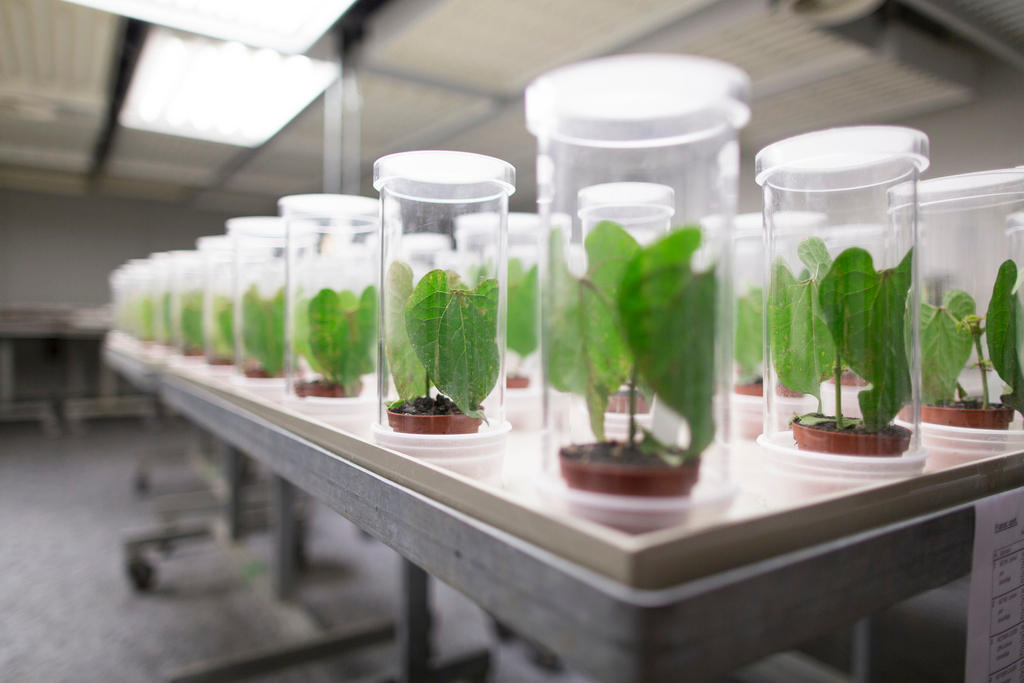
Following humble beginnings in the late 18th century, Swiss-based Syngenta is now one of the largest agribusiness companies in the world. What's it like to work there?
Syngenta has a complicated image. It has its origins in Switzerland but is owned by a Chinese firm. Though it calls itself an agricultural company, it hires more scientists and chemists than farmers. For employees, Syngenta is a science-based company helping feed the world; for activists, it is a pesticides company threatening human health and the environment.
Syngenta’s headquarters stand opposite the Badischer train station in Basel, looking somewhat unassuming compared to the major pharmaceutical campuses in the city. Its four main buildings are tucked around the corner from a McDonald’s restaurant but the gated entrance is an indication of greater importance.
It’s here that swissinfo.ch interviews Varun Vats, Senior Manager of Public Policy and Partnerships, and Fabricio Peres, head of Sustainable and Responsible Business Crop Protection, both of whom have worked at the company for just under a decade. Regina Ammann of the company’s external affairs team, who worked for various multinationals before arriving in Basel a few years ago, also shares her perspective.
Inside the Multinationals series: What is it like to work in a multinational?
This article is part of a series on what it is like to work for a multinational company. Multinationals play an important role in the Swiss economy, but for many people, the companies can seem like islands of concrete buildings or campuses full of foreign workers. This series aims to uncover what it is really like to work at these companies and to explore the issues faced by their employees.
One company, 70 nationalities
Varun Vats grew up in Delhi, India, where he earned a BA in Economics before coming to the University of Lausanne in 2005 for a MSc degree in Economics. After research on the sustainability of biofuels, he worked a series of roles in organisations like the World Business Council for Sustainable Development (WBCSD) and the International Union for Conservation of Nature (IUCN), before joining Syngenta’s sustainable and responsible agriculture team in 2012.
“I came across the job opportunity through the traditional job portals,” he says. “I don’t think I was the best candidate, but I already knew the company from previous work and at that time, the company wanted to have an outside-in perspective on agricultural sustainability. I think my experience with WBCSD and IUCN made me a preferred candidate.”
In contrast, Fabricio Peres is a relative newcomer to Switzerland, but worked for the company for eight years in his native Brazil. Prior to that, he was with a small consultancy firm, until he got wind of the Syngenta job opening from a former colleague. Six interviews later, he joined the Brazil office, then the Latin America regional team, before eventually moving to Basel in 2017.
Both are part of the skilled foreign workforce that makes up a significant portion of Syngenta’s staff, where over 70 countries are represented. Peres says there are no two people of the same nationality on his ten-person team.
Skilled foreign workers are important to the company but increasingly in short supply, says Regina Ammann. “We are facing a war on talent. With digitalisation becoming more important, we really rely on foreigners. There are several initiatives here in Switzerland to encourage people to study maths and natural sciences, explaining that this will be the workplace of the future, but it remains difficult, especially in the life sciences.”
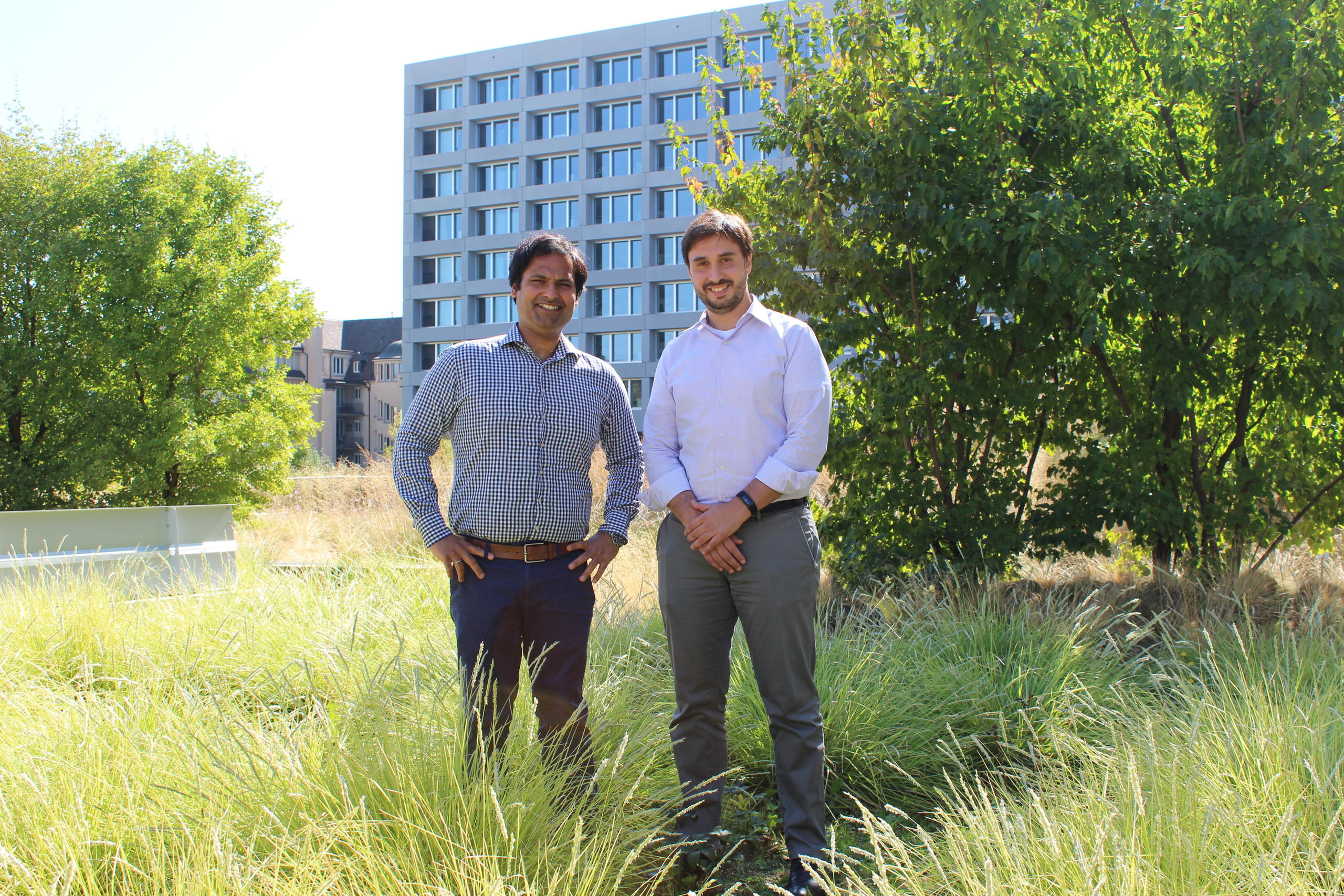
Swiss-China connection
Although Syngenta has its origins in Switzerland, it was acquired by ChemChina, a large state-owned Chinese chemical company in 2017. While the company is often named in the media as an example of Chinese encroachment on Swiss interests and way of doing business, Ammann says that the acquisition “didn’t change anything for the company operationally. In fact, it has been very positive. We now have a long-term investor, providing some stability.”
In the past, the short-term interests of investors who didn’t really know the business drove the company. “It takes eight to ten years to bring a product to market. You cannot move the strategy every quarter or half-year,” Ammann says, adding that the company hopes its ownership can also help find the right partners for acquisition and growth in the Chinese market.
Although very much a global company, there is some “Swissness” in the way business is conducted. Vats has spent his entire career in Switzerland and so he finds it difficult to compare to Indian practices. He does say however that he finds the Swiss tend to start their day early, which is difficult when “not a morning person”. He appreciates the Swiss values of precision and punctuality, which are reflected in the business.
Peres talks of more subtle differences compared to Brazil. “I find the Swiss way of doing business very democratic. There is a strong emphasis on dialogue and consensus-building. Many decisions are discussed exhaustively, and it’s important that the people who need to be there are there.” This may explain why Peres spends 70% of his time in meetings.
While Switzerland is home to the company’s headquarters, it represents a small market. Ammann explains that “12-13% of the company’s costs are in Switzerland because of its large research and development and production sites. The company’s largest crop protection site globally is in Switzerland. But, the turnover of the Swiss business is only 0.2-0.3% of total turnover.”
So why stay here? The dual education system is one important reason. Ammann says that “an apprenticeship and then a degree from a University of Applied Sciences is a very good combination. We have a lot of process engineers from this route that are key to running highly sophisticated chemical processes where safety and security is very important.”
Facing the controversy
Syngenta has been at the centre of controversy for some of its crop protection products and seed varieties. Just last week, the NGO Public Eye accused the company of exporting banned pesticides that it blames for the involuntary poisoning of cotton farmers in India. The company says there is no evidence to suggest that its products were responsible for the incidents that occurred (see response).
Rather, the company believes its products are essential to feed the world sustainably. Peres explains that Syngenta provides solutions to help farmers improve yields and help growers adopt sustainable soil management practices. This helps curtail deforestation, which is a major contributor to climate change.
He adds, “50% of the soybean imported by China comes from Brazil. It is an important feed for animals. You need six times more to feed a cow than a human being. That is massive. Imagine that in terms of farmland: if you don’t have technology to make the land more productive, you’ll go to the forest.”
What people often misunderstand about Syngenta, says Vats, is that the company is focused on scientific evidence. “We are a science-based company. We have a very strong footprint in research and development. In fact, some 10-15% of sales go into research. What frustrates us is that when allegations are made from the emotional or political side rather than the science side.”
Statement from Syngenta on Public Eye reportExternal link on insecticide poisoning in India
“Across the world in the more than 90 countries in which the company operates, Syngenta places the utmost importance on the safe use of our chemicals and products. Syngenta conducts safe handling of pesticide trainings in these countries. In the last four years, Syngenta has trained more than 25 million farmers around the world in the safe use and handling of our products. Since the unfortunate incident in the Yavatmal district in India, Syngenta teams have conducted stewardship programs in the district and adjoining regions, conducted doctor training programs and established mobile health clinics to support treatment of farmers who may have been affected. These mobile health clinics have reached more than 25,000 farmer families since the program began in response to the incidents.”
Vats and Peres recognise the sensitivity of their work. Vats explains that “having debate is an important part of our jobs. We are very open to dialogue and learning from others.” At the end of August, the company committed to having more direct and inclusive conversationsExternal link on sustainable agriculture to “help rebuild the trust between society and science”. It has launched “listening sessions” to gather outside perspectives on what is meant by sustainable agriculture.
What makes things complicated, says Peres, is the fact that “economic development has moved people very far from agriculture. There is a lack of knowledge about farming and its complexities. Farmers need to manage many variables and make significant upfront investments that can be wiped out by weather, for example. It is easier to criticize or to be against something that you are not very close to.”
He says that there is a responsibility from all sides to understand the issues. “I come from a country where agriculture is very important, so I know the value that our products provide to people. It is really powerful for a family or the parents to be able to put their kids in school because they are improving the way they farm.”
What about the pesticides initiatives in Switzerland? Ammann says that the company hopes the bans are not adopted. “It’s important to make people aware that pesticides are used to make safe food at an affordable price in a sustainable way. People in Switzerland live in cities or in apartments just outside cities but not in the agriculture sector, and so knowledge is not very deep about what it takes for a farmer to produce our food.”
Facts on Syngenta
Founded: 2000. Although only a couple of decades old, its roots trace back to a trading company founded in Basel in 1758. It is also the product of a merger between Novartis and Astra Zeneca. In 2017, the company was bought by ChemChina.
Headquarters: Basel
Number of employees: 28,000, of which 10% are in Switzerland
Operations: Active in 90 countries. In addition to its HQ, the company has five locations in Switzerland for local sales, global research and development, and production.
Business sector: Agribusiness. It provides crop protection products, seeds, and services. This includes fungicides, herbicides, and insecticides. It has over 2,500 vegetable seed varieties and 150-200 new varieties are added every year.
Contribution to Switzerland: Pays about CHF200 million per year in taxes and levies in Switzerland.
Fun fact: Dye was invented at the Syngenta campus.

In compliance with the JTI standards
More: SWI swissinfo.ch certified by the Journalism Trust Initiative









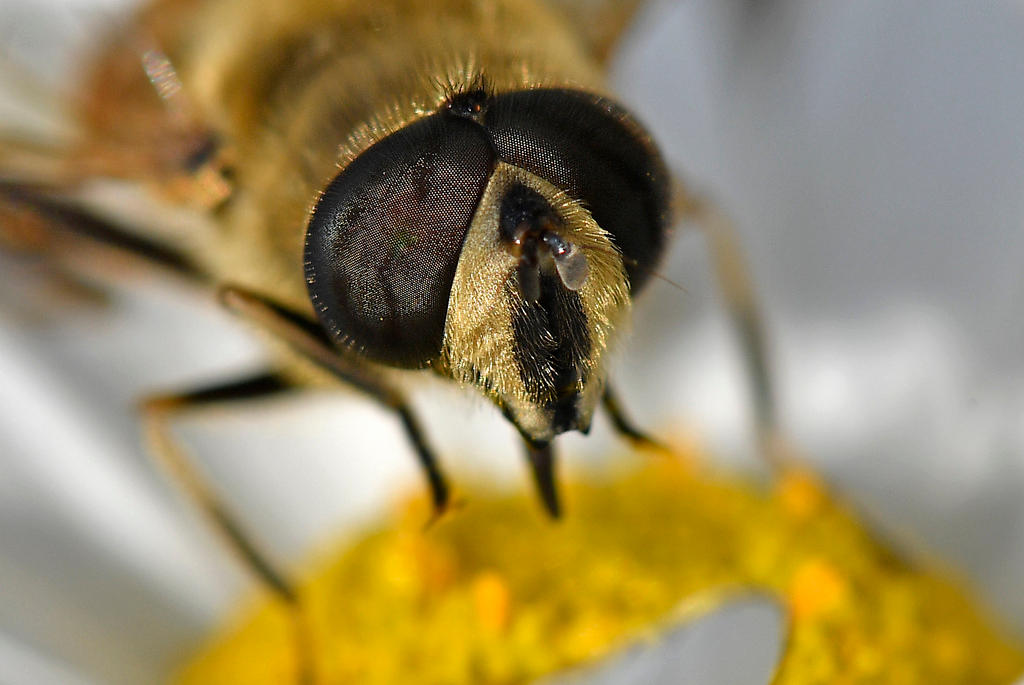





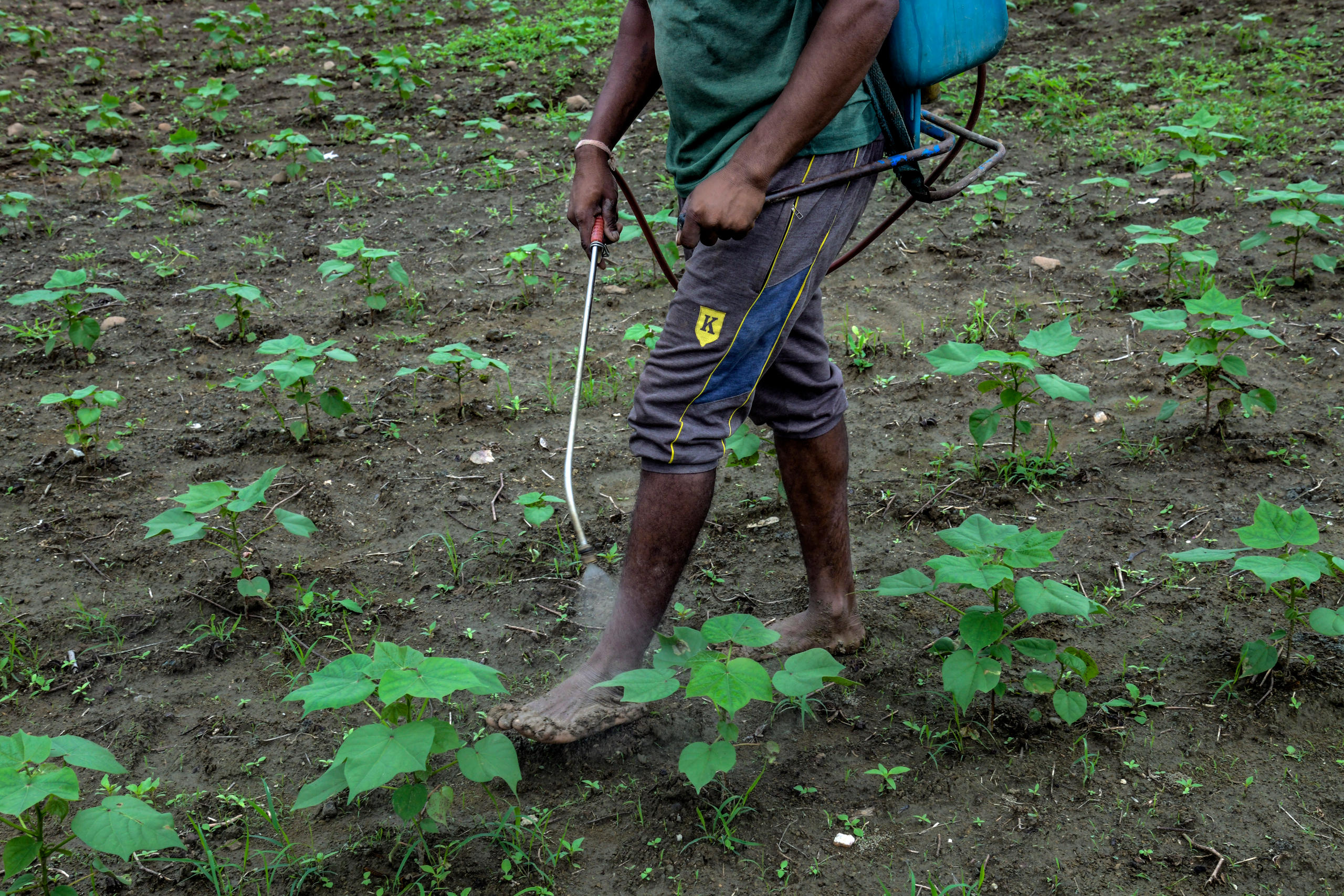
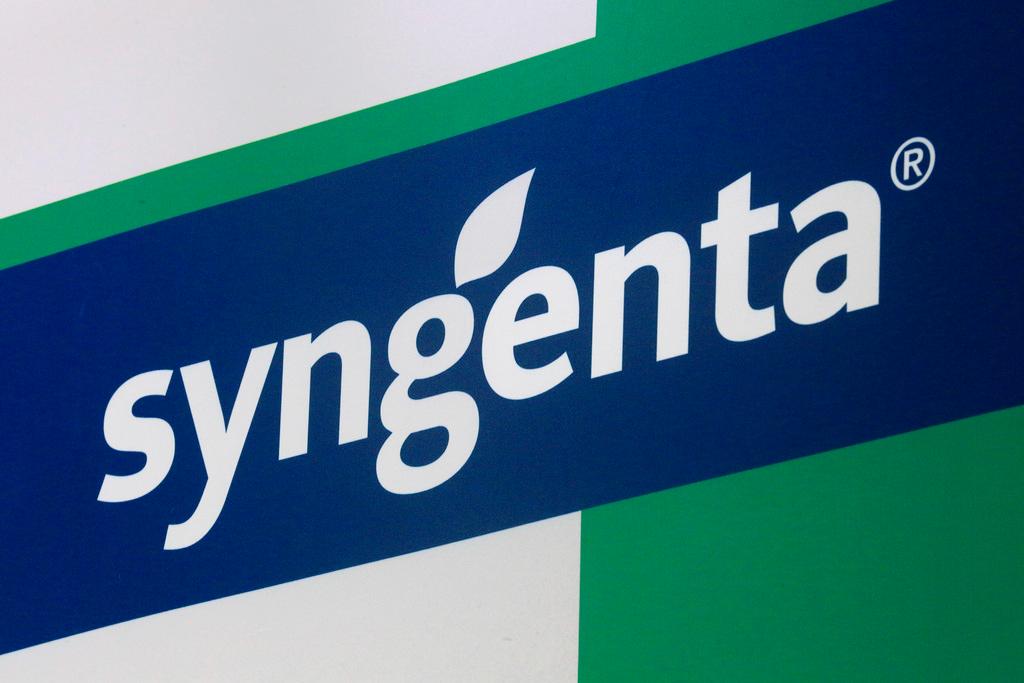
You can find an overview of ongoing debates with our journalists here . Please join us!
If you want to start a conversation about a topic raised in this article or want to report factual errors, email us at english@swissinfo.ch.